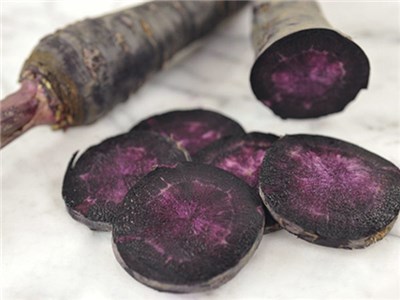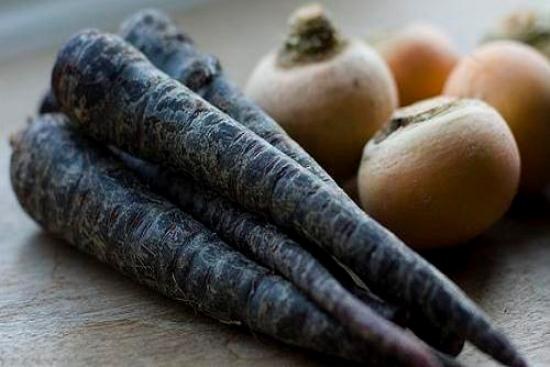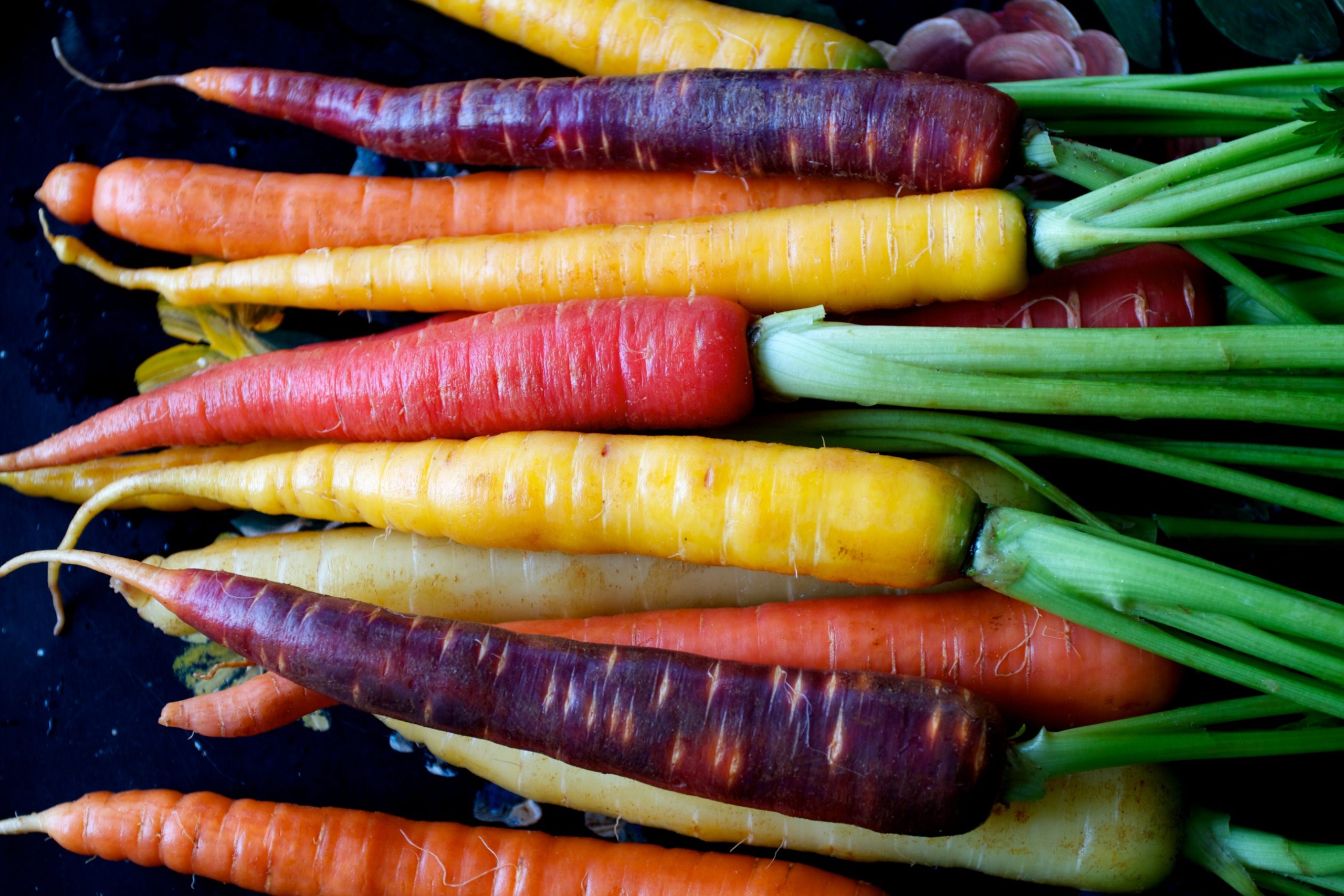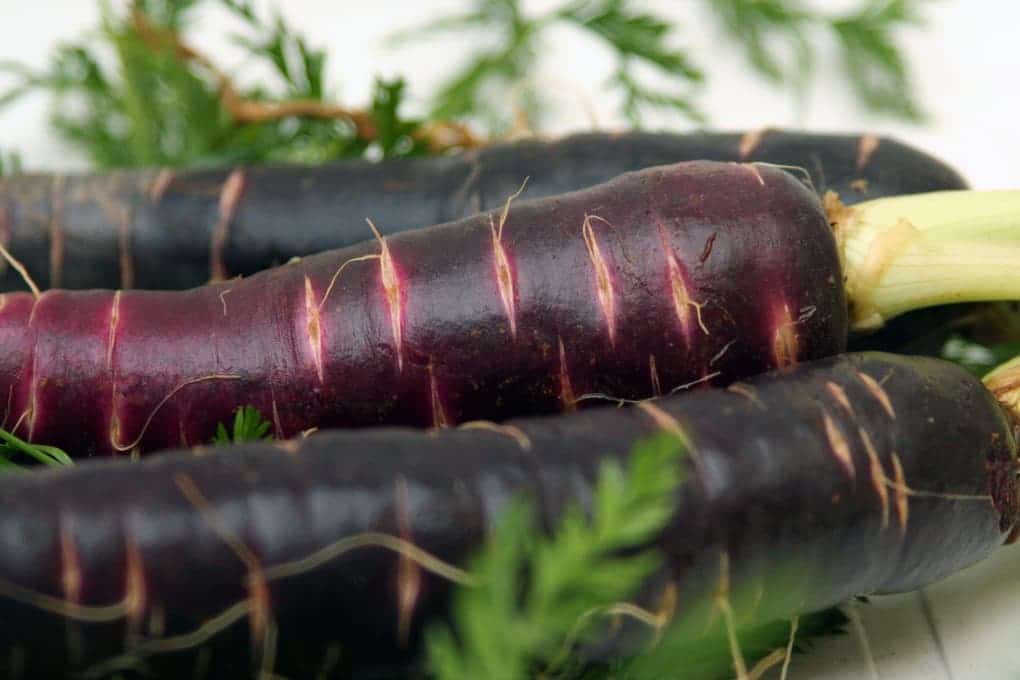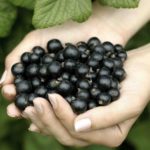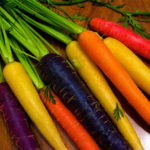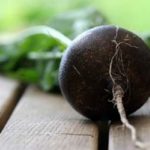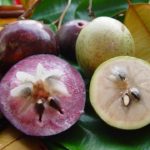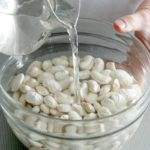Black carrots are a curiosity for our latitudes. Few of our compatriots are familiar with the black variety of such a very useful root vegetable as carrots. We all know the benefits and benefits of bright orange carrots. She is a welcome guest on the tables of our compatriots at any time of the year. Young root crops of this vegetable are especially valued in the spring, during the period of vitamin deficiency. After all, its saturation with vitamins and beneficial microelements is such that it can confidently compete with any overseas miracle fruit.
But black carrots are not often seen on the shelves of our stores and vegetable markets.But, nevertheless, black carrots really exist, but whether they are inferior to our orange compatriot in terms of valuable vitamin composition, or superior to them, let’s figure it out.
A little history
Black carrots with a bluish tint grow mainly in the East and Asian countries. This variety is called scorcionera. This variety is also very popular in the countries of North and South America, Pakistan, India, Turkey, and Egypt.
In appearance, the root vegetable is exactly the same as the orange one we are used to, only of a different color. This type of carrot is a perennial. But in practice it takes two years to grow it. Unlike us, in countries where black carrots are grown, they are accustomed to eating not only the root vegetable itself, but also the “top” from which all kinds of salads are made.
It grows from seeds; in the first year, only part of the sweet, healthy roots are collected, which are successfully eaten, while the second part is left for seeds.
In the second year, the carrot with the proud name of scorcieria is covered with bright yellow and fragrant flowers. Such beauty serves as a decoration for any garden. With the onset of autumn, seeds ripen from the flowers, which are collected and sown for the next season.
There are also wild varieties of this useful plant, but in terms of taste and vitamin composition they are significantly inferior to their cultivated relatives.
Skorciera can reach quite impressive sizes: 30 cm in length and up to 40 mm in width. The core is not dense; the inside may be light yellow (depending on the variety). The aroma is very pleasant and has distant notes of vanilla.
Varietal variety
There are more than 200 varieties and species of scorciera in the wild. It grows in meadows and fields, and can often be seen along roads. It is also eaten, but only cultivated varieties have greater nutritional value and better taste.
In our country, of the cultivated varieties of scorcieria, only two varieties have taken root:
- Sunny premiere.
- Medicinal.
These varieties have great nutritional value and are second only to soybeans and beans in terms of micronutrient content.
Features of growing in our latitudes
To grow a black beauty in your garden, you need to have basic skills and abilities. A feature of this variety is its ease of care. It is grown, in principle, the same way as an ordinary orange beauty.
Important to remember. You should not stock up on seeds for a long period. Seeds achieve good germination only the next year after they have ripened.
The soil for growing should be sandy loam or loamy. Before planting seeds, it is necessary to thoroughly clear the soil of weeds and preferably fertilize it with humus.
This variety has increased drought resistance: it does not need to be watered frequently and abundantly, but it does require timely thinning of the beds. Otherwise, scorcieria will grow poorly and the fruits will be smaller.
It usually takes 3-4 months from planting seeds to harvesting. Dig up black carrots in dry weather. After harvesting, the harvest must be thoroughly dried, always in the shade, avoiding exposure to bright sunlight, which can spoil the fruits: give them an unsightly green color, which indicates the appearance of very toxic substances. After drying, the fruits must be stored in a cool, well-ventilated area.You can store it in boxes with sand, in polyethylene bags, in fabric bags.
Useful properties of scorciera
This variety may be very unusual and unsightly for us in terms of aesthetic appearance, but in terms of taste it is very, very superior to our usual orange beauty.
The fact is that scorciera contains 12 times more antioxidants than our regular carrots. This makes her a real home doctor.
Its nutritional value is enormous and is many times greater than the value of our healthy orange carrots. It also contains a large amount of vitamins B and C, macro and microelements, which include substances necessary for our body such as iron, calcium and phosphorus.
Eating this root vegetable will provide an indispensable health benefit for the following ailments:
- Iron deficiency anemia, spring vitamin deficiency.
- For various disorders of the liver and kidneys.
- Obesity of different stages.
- Diseases of the gastrointestinal tract.
- Various colds.
- Diabetes.
It is part of the diet menu for any diseases. Vitamin A contained in the root vegetable can perfectly strengthen vision. A large amount of fiber improves digestion, cleanses the body of waste and toxins, and serves as an excellent prevention of constipation. And the large amount of vitamin C in the root vegetable perfectly strengthens the immune system, helping the body cope with colds and flu in the spring and winter. Inulin makes such carrots indispensable for diabetes.
How to use
This root vegetable is consumed raw, boiled and stewed.Freshly squeezed juices from scorciera are very useful, which can be consumed both in pure form and in combination with other juices, such as apple. Salads, stews, soups, and borscht are prepared from it. This is an excellent side dish for meat and mushroom dishes.
In China and Tibet, black carrots are not only consumed as food, but are also actively used in the production of medicines. All kinds of drugs for diabetes and anemia are prepared from it.
But black carrots are still inferior in some ways to our orange ones. It contains no carotene at all.
Contraindications for use
No matter how useful and healing this overseas root vegetable is, there are still some contraindications to its use. Black carrots should not be consumed by those who have a history of:
- Gastritis.
- Ulcers of the stomach or intestines.

